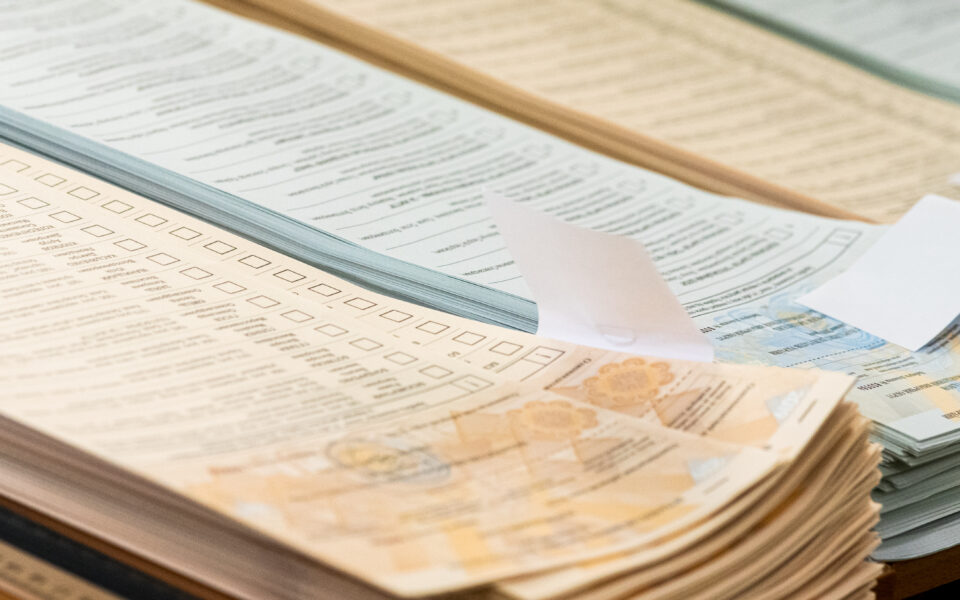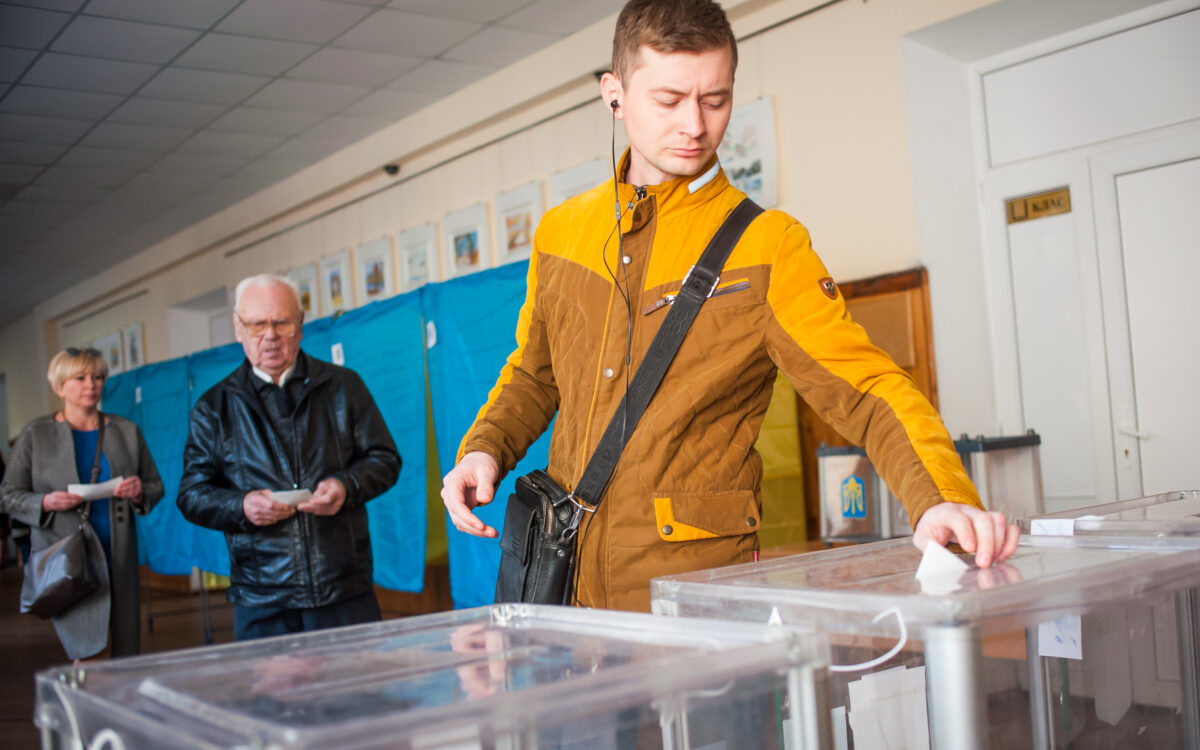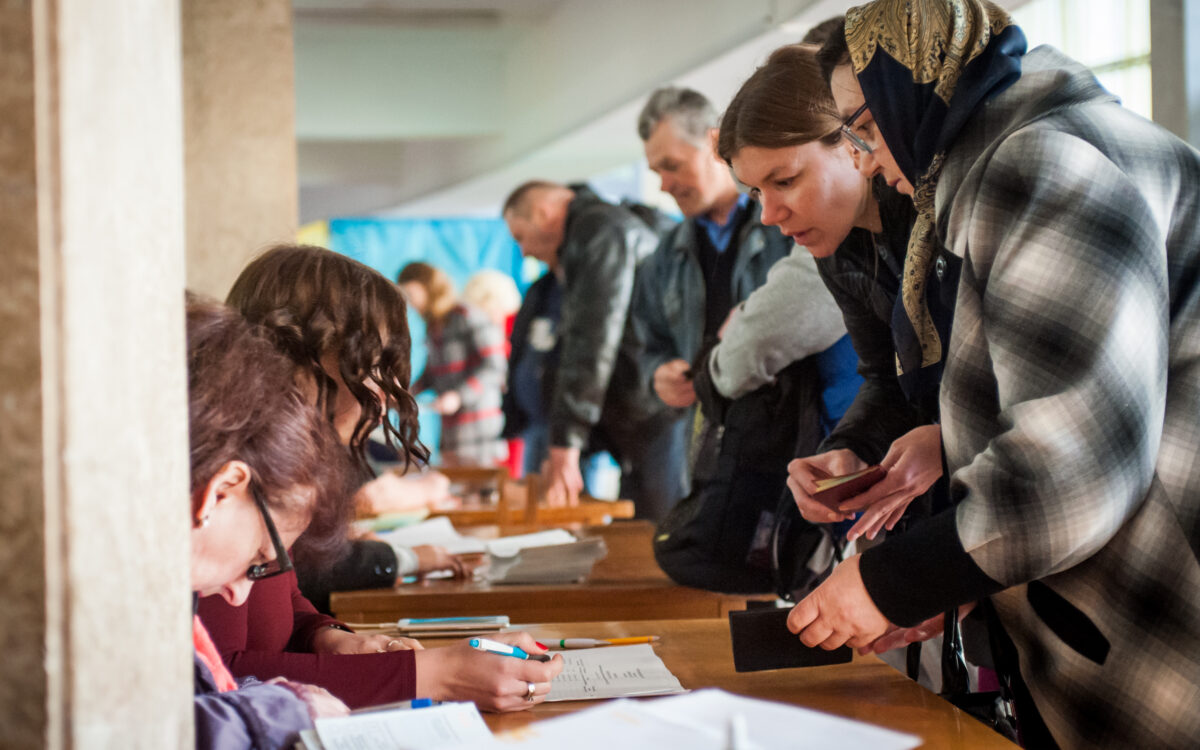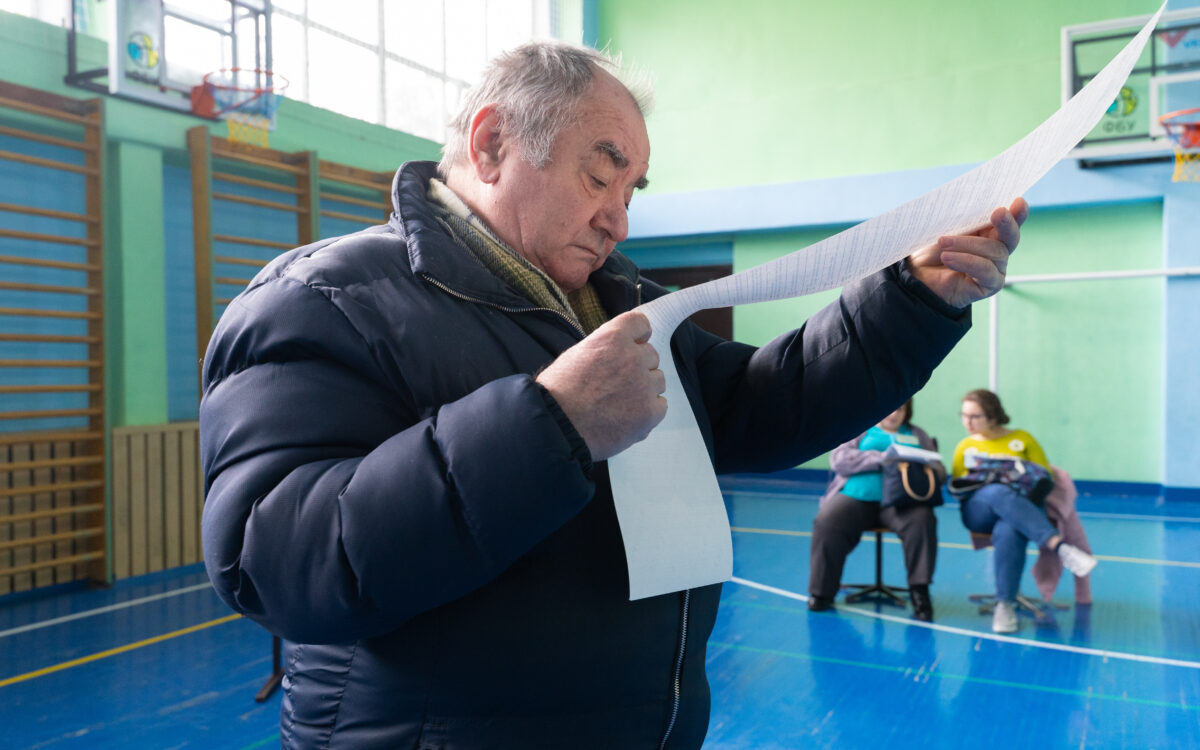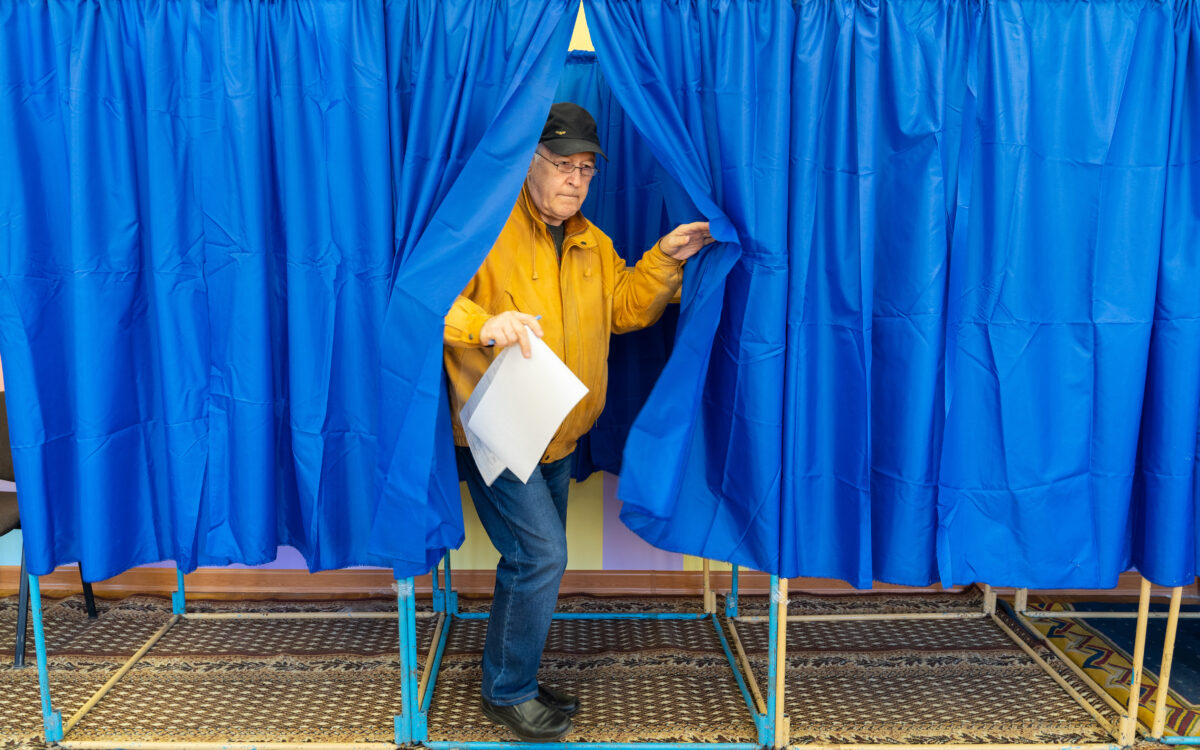It’s both a great time and a terrible time for Volodymyr Zelenskyy to have an election
17.11.2023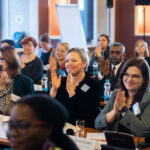
International Association of Women in Electoral Management Hosts General Assembly Meeting and Plenary Conference
21.11.2023President Says and Ukrainians Agree: Now is Not the Time for Elections. On November 6, President Volodymyr Zelenskyy spoke against holding elections during this stage of Russia’s war in his daily evening address.
“And we all understand that now, in wartime, when there are so many challenges, it is absolutely irresponsible to throw the topic of elections into society in a lighthearted and irresponsible way,” said Zelenskyy. “We must realize that now is the time of defense, the time of the battle that determines the fate of the state and people, not the time of manipulations, which only Russia expects from Ukraine. I believe now is not the right time for elections,” he added.
These statements resonate well with the vast majority of Ukrainians, who, according to recent public opinion polling, do not support administering elections during total war.
At this link are the results of six public opinion surveys in which most Ukrainians speak out against conducting elections during wartime.
Elections During War: What Do Civil Society Activists and Experts Propose? On November 6, Pavlo Romaniuk, legal advisor to Civil Network OPORA, and Oleksandr Kliuzhev, IFES Ukraine electoral reform expert, participated in an interview program on Ukrainian Radio.
They shared their views on the challenges of administering elections in a large-scale war with Russia, which complicates the democratic electoral process.
“The law on the legal regime of martial law prohibits all elections during martial law,” said Mr. Kliuzhev. “And, there are currently no grounds to start the election process for the presidential and parliamentary elections.”
Both program participants agreed that holding democratic elections during a war is problematic. There are restrictions to free expression during the war and it is currently impossible to ensure the right to vote for all citizens, including military personnel who are currently defending Ukraine. Among other challenges are updating the voter register and establishing additional polling stations for forcibly displaced persons abroad and internally displaced persons within the country.
Listen to the full interview here.
Peter Erben Lecture on “Challenges and Opportunities for the Development of Democracy in Ukraine.” On November 10, IFES organized a guest lecture titled, “Challenges and Opportunities for the Development of Democracy in Ukraine: Ensuring Free and Fair Elections as a Key to Democratic Progress and Sustainable Peace” by Peter Erben, Senior Country Director of IFES Ukraine and IFES Principal Advisor, at Kyiv’s Taras Shevchenko National University.
Mr. Erben shared his unique experience of organizing and conducting elections in different countries, including those in post-conflict environments. He also highlighted electoral reform priorities in Ukraine, the impact of the Russian war on democratic progress and opportunities for further electoral development.
As part of the presentation, students discussed issues related to post-war elections, government lobbying, and reforming political parties in Ukraine.
Vision Discussion on Ukraine’s Electoral System. On November 16, IFES Ukraine Senior Country Director Peter Erben; Central Election Commission Chair, Oleh Didenko; and Chair of the National Agency for Corruption Prevention Oleksandr Novikov, participated in a discussion dedicated to the future of Ukraine’s electoral system. The Kyiv School of Public Administration hosted the event.
The discussion focused on post-war elections and an electoral system suiting Ukraine’s priorities and needs, considering different circumstances in which the country is in compared to circumstances before Russia launched its full-scaled invasion in February of 2022.
Chairman Didenko noted that Ukraine has evolved to an open-list proportional electoral system, which must be improved, and restrictions that make it conditionally open should be removed. Mr. Erben agreed, noting changes that should be made to the open list proportional system, and emphasized ensuring robust gender quotas and strengthening women’s representation in politics.
The discussion moved toward election organization and challenges in post-war elections. Speakers addressed security, destroyed infrastructure, significant migration processes, and outdated voter lists. Finally, panelists discussed the risks of war-time elections.
A full recording of the panel discussion is available at this link.
Civil Society-Led Online Discussions on Challenges of First Post-War Elections in Ukraine. On November 7, a series of online discussions addressing the first postwar elections began. The first discussion was dedicated to the timing and organization of post-war elections.
According to international best practices, changes to electoral legislation should be adopted at least one year before a new election. Changes should be developed inclusively and openly with the involvement of all stakeholders.
The second public online discussion on November 14 was dedicated to ensuring citizens’ electoral rights in the context of mass migration in Ukraine.
To facilitate full and inclusive dialogue on these issues with the Ukrainian people, IFES Ukraine, the Center for Political and Legal Reform, and Civil Network OPORA set out to jointly develop a unified civil society position on the first post-war elections in Ukraine.
A series of public online discussions through mid-December, dedicated to the challenges that may arise for the post-war elections and their solutions, will inform this unified civil society position. Follow-up discussions will be dedicated to organizing out-of-country voting and election process security.
The public online discussions are conducted in cooperation with the National Democratic Institute and the Ukrainian nationwide initiative, “Active Community” from the Institute Respublica.
Ukrainian Central Election Commission Joins WEM-International. On November 8-9, the International Association of Women in Electoral Management, or WEM-International, hosted its General Assembly Meeting and Plenary Conference in Prague, Czech Republic. IFES Ukraine, with the support of the IFES Regional Europe Office, organized the event which featured Oleh Didenko, Central Election Commission Chair and CEC Member Viktoriia Hlushchenko.
WEM-International is the only international association dedicated to gender equality in electoral management bodies, or EMBs.
For the first time, the two-day meeting and conference assembled representatives of EMBs who are members of WEM-International, regional, and international electoral associations and development partners. Eighteen countries were represented by their EMBs.
During the event, participants:
- Discussed best practices on EMB gender mainstreaming and inspiring personal experiences of women’s leadership in electoral administration;
- Admitted new EMBs to WEM-International membership;
- Elected the Association’s leadership team;
- Developed a strategic vision of the Association’s development for the next two years; and,
- Identified opportunities and potential risks in WEM-International’s future work through a Strength, Weakness, Opportunity and Threat, or SWOT, analysis.
Ukrainian Leaders Join Jean Monnet Dialogues for Peace and Democracy. For the ninth time, from November 10-12, Verkhovna Rada committee chairs and parliamentary faction leaders met in the format of the Jean Monnet Dialogues for Peace and Democracy.
The objectives of the Jean Monnet Dialogues and their mediation process are to contribute to developing political dialogue and consensus among political parties.
“This is an important format,” said Oleksandr Kornienko. the Rada’s First Deputy Speaker. “The extraordinary conditions under which it took place demonstrate our steadfast and resolute position to work together, seek consensus and strengthen the unity of democratic forces in Ukraine.”
Participants signed conclusions in which they agreed that future free and fair national parliamentary and presidential elections would be conducted after the conclusion of Russia’s war and martial law.
Access the full conclusions here.
IFES Ukraine Signs Memorandum of Cooperation with Ministry of Digital Transformation. On November 13, Peter Erben, Senior Country Director of IFES Ukraine and IFES Principal Advisor, and George Dubynskyi, Deputy Minister for Cybersecurity in the Ministry of Digital Transformation, signed a Memorandum of Cooperation (MoC) aimed at fostering a safe and secure cybersecurity environment and preparing solutions for future post-war elections in Ukraine.
The MoC will help IFES and the Ministry develop cooperation on:
- Citizen data protection in public registers;
- Civic education for using technology in support of democracy;
- Training information technology specialists in government;
- Cybersecurity and Information and Communication Technologies (ICT); and,
- Research and international expertise
During the signing ceremony, IFES and the Ministry noted that IFES’ international expertise in cybersecurity and ICT, adherence to international standards and lessons learned from other countries will strengthen cybersecurity and digital transformation in Ukraine.


